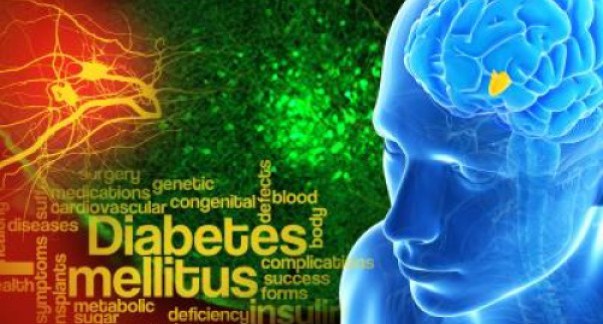
A key mechanism behind diabetes may start in the brain, with early signs of the disease detectable through rising levels of molecules not previously linked to insulin signaling, according to a study led by researchers at the Icahn School of Medicine at Mount Sinai in New York City. The findings were published this week in the journal Cell Metabolism.
Previous research has shown that levels of a key set of protein building blocks — called branched-chain amino acids (BCAAs) — are higher in obese and diabetic patients, and that this rise occurs many years before someone develops diabetes. However, it remains unclear exactly why and how breakdown of these molecules becomes impaired in people with diabetes and obesity.
The initial discovery that started this line of investigation was made after studies of liver and plasma from rats that had been infused with insulin into the brain suggested that BCAAs may be involved in brain insulin signaling.
In their own studies — conducted first in mice, rats and roundworms, and then in prediabetic monkeys and humans — the team confirmed an association between elevated BCAAs and impaired breakdown of BCAAs in the liver. Interestingly, the team found that this new pathway existed across the different species they examined. The authors say that mechanisms such as this that are “conserved across evolution” are often of fundamental biological importance.
Raised BCAA levels indicate ‘impaired brain insulin signaling’
“Our study results demonstrate for the first time that insulin signaling in the mammalian brain regulates BCAA levels by increasing BCAA breakdown in the liver,” says Dr. Christoph Buettner, associate professor of medicine at the Icahn School of Medicine and senior author of the new study. “This suggests that elevated plasma BCAAs are a reflection of impaired brain insulin signaling in obese and diabetic individuals.”
What’s important about these findings, explains Dr. Andrew C. Shin, instructor of medicine at the Icahn School and the study’s lead author, “is that rodents with impaired insulin signaling exclusively in the brain have elevated plasma BCAA levels and impaired BCAA breakdown in the liver.”
“Since disrupted brain insulin signaling may cause the early rise of BCAAs seen in persons who eventually develop diabetes, the insulin resistance that leads to diabetes may actually start in the brain,” Dr. Shin adds. “The results suggest that levels of BCAAs may prove to reflect brain insulin sensitivity.”
The findings add to a line of research suggesting that diabetes — a disease that occurs when the body does not produce enough insulin, or the insulin that is produced does not function properly, leading to abnormal blood glucose levels — could actually stem from the brain.
In August, a study published in the Proceedings of the National Academies of Sciences identified another mechanism in the brain implicated in diabetes. The researchers behind that study, from Yale University School of Medicine, New Haven, CT, found that prolyl endopeptidase – an enzyme in the brain – is important for sensing and controlling levels of glucose in the blood. The mechanism that this enzyme triggers is associated with both type 1 and type 2 diabetes, due to its interactions with both the pancreas and glucose in the blood.
Also last year, an international team of scientists published a study outlining growing evidence to support the idea that the brain plays a key role both in normal glucose regulation and the development of type 2 diabetes. The researchers proposed a two-system model, where the pancreatic system reacts to rising glucose in the blood by releasing insulin, while the brain system enhances glucose metabolism. They suggest that, of these two systems, the brain system is the first to fail, which then puts pressure on the pancreatic system.
